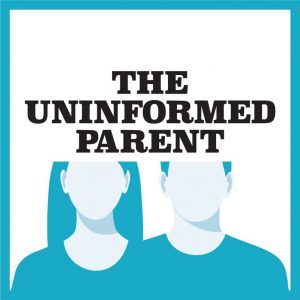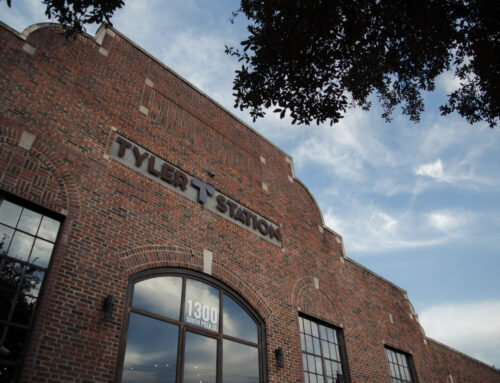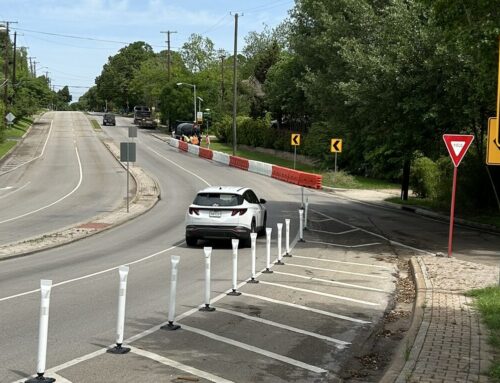 Episode 16: In this episode, we talk about tips and tricks for navigating school choice.
Episode 16: In this episode, we talk about tips and tricks for navigating school choice.
Podcast credits: Keri Mitchell, produced by Advocate Magazines
Full transcript
This week’s episode is a bit different. A few months back, the North Oak Cliff Branch of the Dallas Public Library invited us to collaborate on an event where parents could learn more about school options. I invited three parents, all of whom had made different choices for different reasons, to sit down and discuss what went into their decisions. But before jumping into their individual stories, I shared seven parent hacks with the audience on how to pick the right school for their child. What’s more important — convenience or test scores? Should you research a school online or visit to take a tour? Is there such thing as the “best” school?
These are the kinds of topics I covered in the seven parent hacks, because these are the kinds of things that come up in conversation — often — when I’m having coffee with friends or at the park with my kids. I wanted this event to echo those conversations — the real questions parents are asking themselves and their friends as they try to figure this thing out. I hope you find it helpful, too.
Julie Hyatt: Welcome to the North Oak Cliff Branch Library. Thank you all for being here on this beautiful Saturday morning. We’ll make it short and sweet. I promise. What you’re going to hear today is great information, so again, thank you for being here. My name is Julie Hyatt. I’m the branch manager here and one of the reasons that I wanted to do this program was because we see families like you every day with young children who have questions about schools. So hopefully these people can give us some answers. Here’s our main panelist, Keri Mitchell. She is from the Oak Cliff Advocate. She’s been covering education for more than 15 years first as a beat reporter at daily newspapers in the Houston-area and for the last 12 as part of her various roles at Dallas advocate magazines. She’s a mom of two daughters, ages eight and four. The oldest attends Dallas ISD’s Mona Montessori, a public school down the street from her house. And the youngest attends Lakewood Montessori, a private preschool. She’s been a magazine editor, managing editor and senior editor at the Advocate. Now she’s the editor-at-large, which gives her the opportunity to delve into interesting stories and projects about her favorite topics: history, development, religion and especially education during the hours when her children are at school. This past fall, she launched a podcast called The Uninformed Parent after talking with readers and friends who were struggling to make choices about where to send their children to school. I’d like to give a big round of applause to Keri Mitchell. Thank you.
Keri Mitchell: Thanks so much to the library for making this happen. So we’re going to do a couple of different things this morning. One, I am going to talk a little bit about some things that have been on my mind and that I share with my friends and with readers when they’re asking about school decisions, and then we’re going to take some time to discuss with our panel, who I’ll introduce in just a little bit, about how they made decisions and kind of what things went into that. We all kind of different perspectives on schools, and we all have kind of different situations going on. But the thing we have in common, which is what I’m sure we have in common with all of you, is it that we love our children and we want the best for them. So that’s the main thing that we use to make decisions about schools, but that word “best” is one that I have kind of been trying to dissect and get at a little bit with my reporting and writing and with this podcast now. Is there such a thing? Can we find it? Is it inclusive? Does it mean different things for everyone? We’ll talk a little bit about that, but thank you for sharing your Saturday morning with us and I hope this is helpful to everyone.
Hack #1 – Tour every potential school: I’ll get right into what I’m calling “Parent Hacks.” We’re focusing mostly on elementary school. We could have a whole ‘nother discussion about middle school and high schools, but we’ll talk about elementary schools today. The first thing I suggest to everyone is to take a tour of every school that you’re interested in and especially take a tour of your neighborhood school and that’s whether you end up there or not. It is really important to kind of know what it’s like [and] get a feel for it, because you live there. So, it’s just a good idea to know what’s going on. I think it’s pretty well known that if you’re looking at a private school they offer tours. I think it’s less known that if you want to go to a public school, you can take a tour. You can actually take a tour anytime. You don’t have to have kids. You don’t have to be, you know, going there. You can call the school and arrange it. If you call a school and don’t get that feedback, I would obviously love to hear about that, but every school I’ve talked to is saying, “Yeah, sure. If parents call us, we’ll make that happen.”
Hack #2 – You can transfer to any Dallas ISD public school: You’ll meet Denise in a little bit, but Denise has been on the podcast quite a bit this year, and something my friends have told me they learned from listening to you was you can transfer to any public school in Dallas ISD. People don’t know this, and this is somewhat of a new thing across the board. The board or the administration changed its policies last year, so that if there is a school that has open seats, meaning that there are fewer students there than its stated capacity, then you can transfer there. It used to be that you had to kind of come up with some sort of reason like my home school didn’t meet standard on state testing. Now, you don’t have to come up with a reason.
Hack #3 – Know the difference between magnet and choice schools: You may have heard about magnet schools and choice schools in Dallas ISD. They’re two different things. Magnet schools require an admission process. The deadline for both, by the way, is January 31st, which is one of the reasons we wanted to have this event now, because that will maybe give you 11 days to think about it. But there’s an admission process for magnet schools that requires you to take some sort of test or exam or interview or references or that sort of thing, and with choice schools, it’s a lottery. There’s no real admission process. It’s just you fill out an application online, and if you are chosen by the lottery, you get in. Some of those do admission by kind of the radius of the school. My daughter is at a choice school that admits by who lives closest to the school. Then there’s other schools like [?] Solar Prep [?], which is going to be a K-8 all girls school on Ross Avenue, and it gives preference by socioeconomic status. So there’s kind of some different things going on there, but if you’re interested in something like that, those are worth looking into. If you transfer, you’re on your own, so that’s just something to keep in mind, which brings me to my fourth point.
Hack #4 – Weigh the importance of convenience: Don’t underestimate convenience. I think a lot of times parents of young ones, we’re always looking for the best thing, whatever that is. One of the things to think about is, you know, how much am I going to be in the car? Am I going to be able to volunteer? Am I going to be able to get involved? Those are real questions. So is it a school that is in my neighborhood? Is it on the way to work or on the way back? Is it a school that’s near my other children’s preschools or older children’s schools? Is it a school that all of my kids can go to make it convenient for my family? That’s a big one that sometimes we don’t think about when we’re just thinking about how to get my kid into the best school.
Hack #5 – Focus on the individual school not the school system: Here’s one that comes up when I’m talking to people about elementary school. They’ll immediately say, “Well, that middle school though,” and I would say first of all, do not judge an elementary based on its middle school. There’s a lot of reasons for that. One is that if your child enters in kindergarten, you have six years, kindergarten through fifth grade, a lot can change in six years. A school might change completely in six years. Your understanding and perceptions can completely change in six years. I completely understand wanting to kind of be in a neighborhood and be a school system for the long haul, and that’s not a bad thing to keep in mind. But it may not be the biggest thing to factor in when you’re making that decision.
Hack #6 – Check the numbers and know the meaning behind them: Get to know the numbers and then look beyond the numbers. So [there are] popular numbers that if you are looking at any public school, whether it’s a Dallas ISD school or a charter school, […] can kind of [help you] get to know about that school. One is test scores. You can pretty much know what the test scores are. You can also know what the demographics are, but there’s a lot behind those that those numbers don’t necessarily tell you, which is the reason I would suggest taking a tour of the school. There are also some other numbers that I would suggest finding out, and these are numbers that are easiest to find out if you go to the school in person. One of those is teacher-student ratios. You know how many kids are in this classroom per teacher? The state requires that it can’t be any more than 22 students up to fourth grade unless you have a waiver, but there’s a lot of schools with a lot smaller classes than that, depending on the situation with that school. That’s a good number to know. It’s good to know on average what the school’s teacher-student ratio is. It’s also good to know what it’s like in kindergarten and first grade compared to the rest of those averages. [?] DISD60 [?] now has climate surveys that their teachers and staff and parents take every year. Those are available online usually on the school’s website. If it’s not and you can’t find it, that’s another thing I’d love to know about, but it gives you a good idea of how people feel about the direction of the school [and] what’s happening at the school. Things like discipline. Things like college readiness those kinds of things. Other numbers that are good to ask for that sometimes we don’t think about asking for: how many after-school clubs are there? How many field trips do you all take every year? How many specials are there, and specials are lingo for electives things like music, art. Help me. P.E. Dance. Those kinds of things, and then things like turnover. Turnover’s a big one. What’s happening in the school year to year? Is the staff staying? Are they leaving? You can kind of get a sense for the stability of a school, knowing the turnover numbers. Are there programs for parents? Is there a PTA? Is there a PTO? Can I be on the site-based decision-making committee. And then a new thing that’s happening in a lot of different schools, [?] Momentous Institute [?] is a big part of this, is social-emotional learning. So are there social-emotional learning programs here? What kind of programs? How many teachers are trained in that? I mean there’s so many questions you can ask and then on top of that just asking, “What else is happening?”
Hack #7 – What factors are important for you in a school: I think the most important thing that you can do after all of this, all the data, all the research, all the numbers [is] determine what you value most and what you’re willing to compromise. I think making a school choice is all about what’s important to you. So is it a certain kind of curriculum, program or approach, such as Montessori or Dual-Language or those kinds of things? Is it location and distance – how far it is away from you, where it is on your route? Is it about the kinds of kids who go to the school or is it about the school’s effectiveness in terms of teaching kids? Those are two very different things, and it’s important to know the difference and to ask about those things. Is it about diversity and what does that mean for you? Is it about finances? Do you want it to be free? Are you okay paying for it?
Conclusion: So there’s some good and bad things about Dallas being inundated with school choices. It can be really overwhelming. One of my favorite stories to tell: I was pregnant with my oldest. She’s now eight. I was sitting at a dinner with some friends, and these friends had older kids. There was this conversation, and it started with, “I need to get my kids into this preschool, because if they don’t get in this preschool, they’re not going to get into the elementary school and then they’re not going to get into the right high school and then they’re not going to go to Harvard.” You know, that kind of thing. I almost went into labor, I mean, it was stressful and it is stressful. I don’t know about you guys, but I don’t go anywhere really and not have these conversations. This is what we’re talking about all the time, and it feels like there’s a lot of pressure and a lot of stress that comes with that. But what’s really important, I think, is to know everything you can know and then make a decision that is best for your family. Understand that maybe “best” isn’t something that we can really, really get at. We need to make good choices, and the truth is, and this is from lots of reporting I’ve done, there are really good schools out there. I’ve walked into so many great schools and not the ones necessarily that people are labeling as “good” or “bad” or “great.” There are wonderful schools that you will find right in your neighborhood if you just go take a look, so I encourage you to do that. So those are the hacks. Thank you for letting me rush through those.
Thanks for listening to The Uninformed Parent. Next week, we’ll hear from the parents on the panel, all of whom chose different schools for different reasons.
This podcast is a production of Advocate Magazines, with music by HookSounds.[/vc_column_text][/vc_column][/vc_row]





